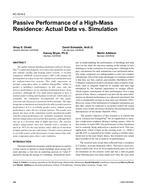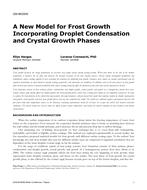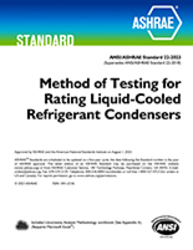Points out that thermal mass in a commercial building can affect HVAC system performance and operation through its interactions with both the zone and return air. Specifically examines the effects of structural thermal mass in an above-ceiling unducted return-air plenum on the air temperature returning to the HVAC equipment from the zone. Provides a brief overview of building mass dynamics and methods of analysis, describes an experimental programme for quantifying the effects of thermal mass on HVAC systems and presents a simplified model for including plenum mass effects. States the results show that thermal mass effects in building zones can be significant and that the mass in the return plenum can effectively temper building temperatures. The results also show that a simple plenum model can be used to account for thermal storage in structural elements in a conventional return-air plenum. Experimental data have been used to validate the model. It has been validated using an analytical solution to the heat transfer problem, which provides concurrent validation of the response factor and transfer function methods commonly used in building simulation programs.
KEYWORDS: Calculating, testing, air conditioning, buildings, thermal inertia, validating performance, plenums.
Citation: Symposium, ASHRAE Transactions, vol. 96, pt. 2, St. Louis 1990
Product Details
- Published:
- 1990
- Number of Pages:
- 5
- File Size:
- 1 file , 690 KB
- Product Code(s):
- D-18736


